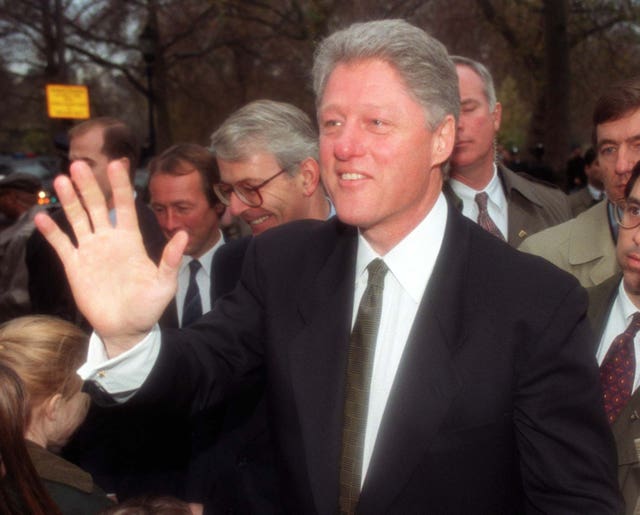
US President Donald Trump has signed into law a major rewrite of the rules of trade with Canada and Mexico.
He said it replaces the “nightmare” of a Clinton-era agreement and will keep jobs, wealth and growth in America.
Mr Trump made renegotiating the North American Free Trade Agreement a priority during his 2016 campaign, although trade experts say the impact of the new U.S.-Mexico-Canada Agreement will be modest.

“This is a cutting-edge, state-of-the-art agreement that protects, defends, and serves the great people of our country,” Mr Trump said in an outdoor signing ceremony at the White House, where the invitation list included more than 70 Republican members of Congress but no Democratic legislators.
“Together we are building a glorious future that is raised, grown, built and made right here in the glorious USA.”
Canada and Mexico already represent the top two export markets for US goods.
But the new pact, along with the signing of a “phase one” agreement with China, dials down trade tensions that contributed to slowing economic growth globally.
The leaders of the US, Canada and Mexico signed the deal in late 2018.

The agreement that took effect in 1994 under President Bill Clinton tore down trade barriers between the three North American countries and commerce between them surged.
But Mr Trump and other critics said it encouraged factories to leave the US and relocate south of the border to take advantage of low-wage Mexican labour.
The US president threatened to leave the North American Free Trade Agreement if he could not get a better deal, creating uncertainty over regional trade.
The independent US International Trade Commission last year calculated the US-Mexico-Canada deal would add 0.35%, or 68 billion dollars (£52.25 billion), to economic growth and generate 176,000 jobs over six years – not much of a change for a 22 trillion dollars (£16.9 trillion) economy with 152 million non-farm jobs.
“It’s a blip,” said Syracuse University economist Mary Lovely.
“The main thing is what it isn’t – it isn’t a continuation of uncertainty and it isn’t a major disruption to business.”
Critics raised concerns the agreement does not address global warming.
Some conservatives said the agreement will make cars and other products more expensive for consumers.


Comments: Our rules
We want our comments to be a lively and valuable part of our community - a place where readers can debate and engage with the most important local issues. The ability to comment on our stories is a privilege, not a right, however, and that privilege may be withdrawn if it is abused or misused.
Please report any comments that break our rules.
Read the rules here